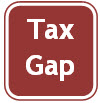 As the FT Adviser notes:
As the FT Adviser notes:
Christos Charalambous completed more than 6000 self-assessment tax returns for clients, which included fictitious expenses claims in order to increase the tax repayments due.
As he knew, the repayments would be automatically paid without question being asked. That is HMRC policy. The accountant in question is now in jail, but that’s not the key point. I am, and I know many HMRC staff are, utterly baffled by the instruction that they must on all occasions make payments to those who ask for refunds of tax and only ask questions later.
There are two reason for the bafflement. First, as this case proves, this is an open invitation to defraud HMRC.
Second, as those staff well know, their capacity to ask questions later has always been limited, meaning many get away with the fraud. And because of the massive cuts HMRC is imposing on its staffing that capacity is now being reduced still further.
And you then wonder why I think the tax gap is £120 billion or thereabouts, £70 billion being made up of tax evasion (of which false reclaims are a part) and £28 billion is unpaid tax debt — of which the requests for repayment of false over claims are a part.
Have no doubt — as the recession develops HMRC will be increasingly seen as a soft touch for easy money if this policy continues.
Thanks for reading this post.
You can share this post on social media of your choice by clicking these icons:
You can subscribe to this blog's daily email here.
And if you would like to support this blog you can, here:



“I know many HMRC staff are, utterly baffled by the instruction that they must on all occasions make payments to those who ask for refunds of tax and only ask questions later.”
I don’t really understand the bafflement: it’s exactly the same policy as when you write a cheque to the Revenue: they accept your declaration of the tax you owe, bank the cheque and reserve the right to ask questions later.
You might expect them to be running a filter over the declarations to flag up odd-looking returns, but that applies as much to the you-owe-the-Revenue as the-Revenue-owes-you scenarios.
I should also point out that this kind of fraud must pale into insignificance compared to VAT carousel fraud. Which is where the big effort has (rightly) gone.